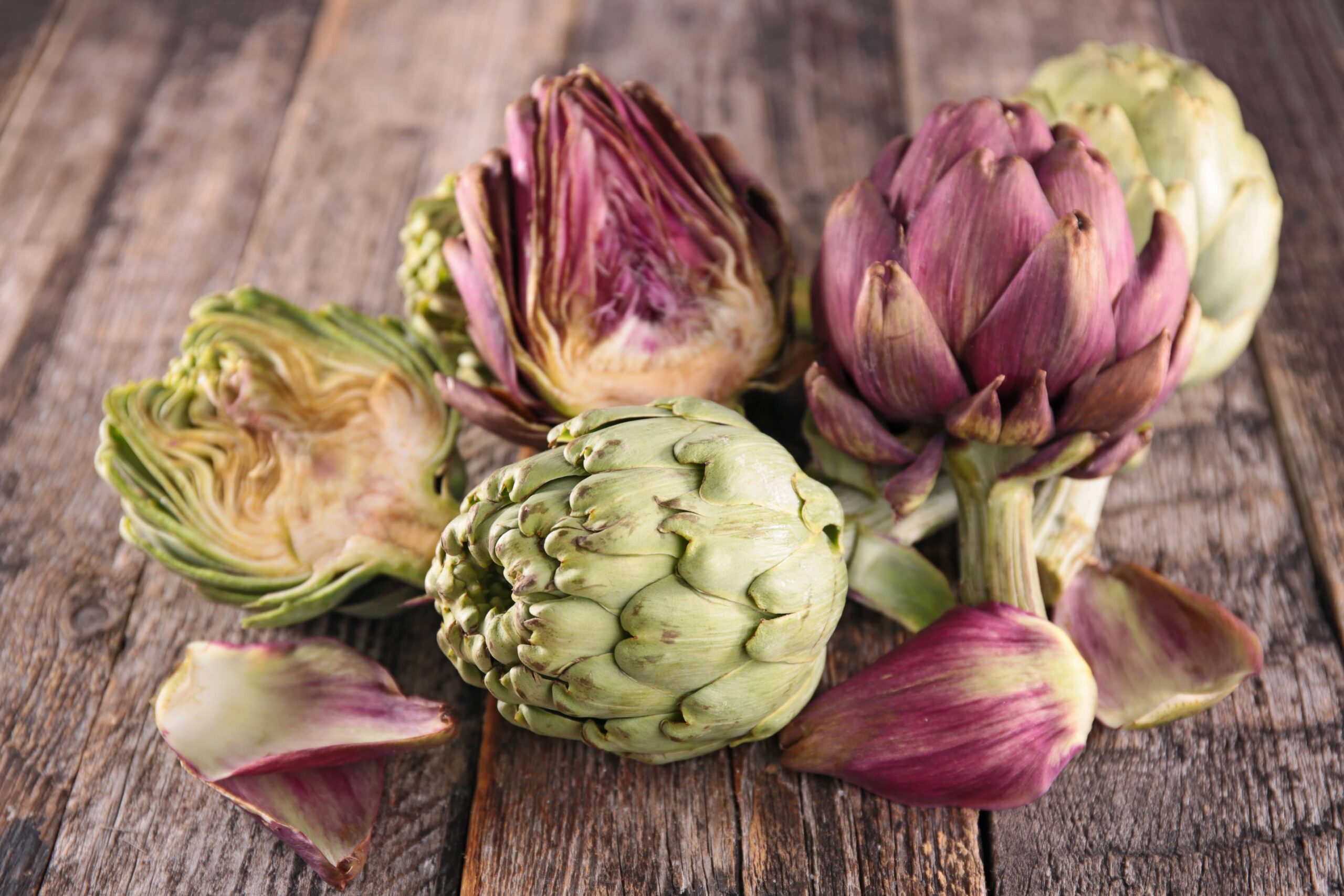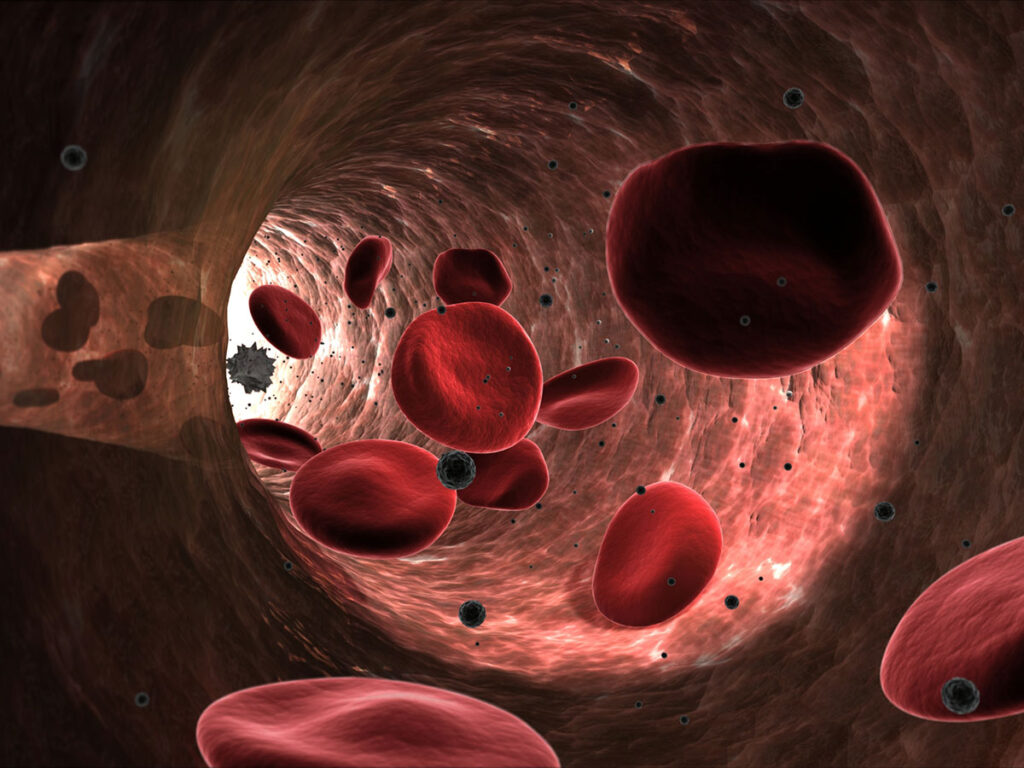WHAT IS ARTICHOKE LEAF EXTRACT?
For many generations, people have grown and valued artichokes, or Cynara cardunculus var. scolymus, as a peculiar thistle plant with possible medicinal and culinary uses. Originating in the Mediterranean region, this adaptable vegetable has a distinctive structure with a tightly packed, edible flower bud that hides a delicate heart encased in protective leaves.

While artichokes are well-known for their culinary applications and earthy, somewhat nutty flavour, they also have potential health benefits. Cynarin, one of the most prominent bioactive substances in artichoke leaves, is primarily responsible for these advantages. Cynarin has been linked to a number of health benefits, including digestive health support, cholesterol management, and liver support.
WHAT ARE THE HEALTH BENEFITS OF ARTICHOKE LEAF EXTRACT?
Artichoke leaf extract, obtained from the thistle-like Cynara cardunculus var. scolymus, has garnered attention in the realm of natural medicines and nutritional supplements for a variety of purported health advantages. Here are a few of its main benefits:
- May improve cholesterol levels: There is potential for improving cholesterol levels with artichoke leaf extract. A thorough analysis with more than 700 participants showed that taking artichoke leaf extract supplements on a regular basis significantly lowered levels of LDL (low-density lipoprotein) and total cholesterol. Artichokes have a beneficial effect on cholesterol because of several bioactive components, especially luteolin, which functions as an antioxidant and prevents the synthesis of cholesterol. Furthermore, it is believed that artichoke leaf extract improves the body’s capacity to properly handle and remove cholesterol. It may be a good option for anyone looking for a natural way to control their cholesterol because of these combined effects.
- May help regulate blood pressure: Elevated blood pressure is a common health concern, and studies have shown that artichoke extract may help those who have it. It has been stated in numerous reviews of research papers that taking supplements containing artichokes can significantly lower blood pressure, both diastolic and systolic. It has been claimed that artichoke extract may encourage the synthesis of enzymes that relax and widen blood arteries, even if the precise mechanisms underlying this effect are not entirely understood. Moreover, potassium, a mineral known for its function in controlling blood pressure, is abundant in artichokes. It’s important to note that the majority of the research demonstrating these advantages has employed extremely concentrated artichoke extract; it’s unclear if the entire artichoke has the same benefits.
- May improve liver health: The benefits of artichoke leaf extract for liver health seem promising. It has shown hepatoprotective qualities, protecting the liver from harm and promoting liver tissue regeneration. Furthermore, the extract promotes bile synthesis, which is necessary for the liver to rid itself of toxins. Interestingly, in animal experiments, artichoke extract has demonstrated anti-inflammatory properties and decreased liver cell death, especially in the setting of non-alcoholic fatty liver disease. Additionally, improvements in liver function and lower levels of liver enzymes—which are a sign of inflammation or injury to the liver—have been documented in human trials. However, more investigation is needed to pinpoint the precise pathways via which artichoke extract promotes liver health and explores its potential therapeutic uses for liver disorders.

Although artichoke leaf extract has many benefits, it’s important to remember that you should always consult a healthcare provider before using it, particularly if you plan to incorporate it into your daily routine. Dietary supplements can have different effects on different people, so it’s important to talk to your doctor to be sure they meet your specific needs and health objectives.
HOW DOES ARTICHOKE LEAF EXTRACT WORK IN HUMAN BODY?
The human body is influenced by artichoke leaf extract through a complex interaction between physiological systems and bioactive substances. Its ability to decrease cholesterol is one of its main routes of action. Strong antioxidant luteolin, which is present in the extract, may stop the body from producing cholesterol and oxidising it later on. Lutein helps lower the risk of cholesterol oxidation and the formation of arterial plaques by reducing oxidative stress. It is also believed to affect cholesterol levels by enhancing cholesterol metabolism and reducing intestinal absorption of cholesterol. All of these procedures work together to lower levels of LDL (bad) and total cholesterol.

Furthermore, the extract from artichokes leaves is linked to blood pressure management. The extract is thought to increase the activity of several enzymes, such as endothelial nitric oxide synthase (eNOS), though the precise mechanisms are yet unclear. These enzymes contribute to decreased blood pressure by relaxing and dilating blood vessels. Moreover, the blood pressure-lowering properties of artichoke leaf extract are reinforced by its elevated potassium concentration. Given that potassium is well-known for helping to keep blood pressure within a reasonable range, people with high blood pressure may benefit most from the combination of processes.
HOW MUCH ARTICHOKE LEAF EXTRACT CAN A PERSON TAKE?
There is no standard dosage for consuming artichoke leaf extract, despite the fact that it can be found in a variety of forms, including supplements, teas, and tinctures. Individual factors such as age, health problems, and the specific formulation used may affect the necessary dosage. Numerous dosages have been used in research investigations; these usually fall between 250 and 2,700 mg daily. Even while artichoke extract is generally regarded as safe, it is best to avoid going above the advised dosage, just like with any supplement. Following the dosage guidelines on the product label or the advice of a healthcare provider is important.
A case study that teaches us something about the value of taking supplements sparingly. A 2018 study that appeared in Current Drug Safety described a case of an elderly person controlling high blood pressure and diabetes. This person drank a significant amount of artichoke infusion—roughly six cups, or 1.5 litres—and developed acute anaemia and liver damage. This case emphasises how important it is to follow suggested dosages and consult with healthcare professionals before beginning any supplementation—even when utilising naturally derived products like artichoke leaf extract.
WHAT ARE THE VARIATIONS OF ARTICHOKE LEAF EXTRACT?
Artichoke Leaf Extract is also available as:
- Artichoke Leaf Extract 2% Cynarin (Cynara scolymus l.)
- Artichoke Leaf Extract 25:1 (Cynara scolymus l.)
- Artichoke Leaf Extract 3% Cynarin (Cynara scolymus l.)
- Artichoke Leaf Extract 4% Cynarin (Cynara scolymus l.)
- Artichoke Leaf Extract 4:1 (Cynara scolymus l.)
- Artichoke Leaf Extract 4:1 (Cynara scolymus l.) Organic
- Artichoke Leaf Extract 4:1 2.5% Cynarin (Cynara scolymus l.)
- Artichoke Leaf Extract 4:1 5% Cynarin (Cynara scolymus l.)
- Artichoke Leaf Extract 40:1 (Cynara scolymus l.)
- Artichoke Leaf Extract 5% Cynarin (Cynara scolymus l.)
- Artichoke Leaf Extract 5:1 (Cynara scolymus l.)
- Artichoke Leaf Powder (Cynara scolymus l.)
- Artichoke Leaf Powder (Cynara scolymus l.) Organic
- Artichoke Leaf Powder Freeze Dried (Cynara scolymus l.)
Artichoke Leaf Extract is commonly available in:
- Artichoke Extract tablets
- Artichoke Extract capsules
- Artichoke Extract Powder
- Aniseed liquid extract
Glentworth Formulations is here to suit your every need. Everything from Tablets, Capsules and Powder blends.
If you are wanting to know more information, please get in contact with us. Either using the contact form or contacting us directly on: [email protected].


